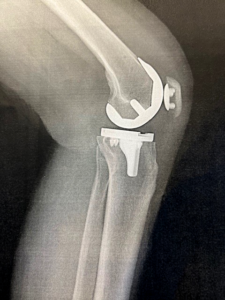Muscle mass declines as we age, but research shows resistance training can help maintain muscle and joint function. A recent study found that weightlifting three times per week steadily increases muscle and joint strength in older people.
Bone and Joint National Action Week Is Oct. 12-20
Arthritis affects more than 60 million Americans. According to the Arthritis Foundation, one in four adults and hundreds of thousands of children experience bone and joint pain. Bone and Joint National Action Week is Oct. 12-20. This week provides opportunities for health and living communities to initiate conversation about the following:
- Osteoporosis
- Osteoarthritis and other forms of arthritis
- Chronic joint pain
- Back pain
- Pediatric conditions affecting bones
Regular Weightlifting Strengthens Bones and Muscles in Older People
People often associate weightlifting with young athletes, but weight-bearing exercise is appropriate and healthy for aging adults.
A university hospital in Denmark studied 369 older adults at retirement age to see the long-term effects of resistance training. The researchers divided the participants into three groups for one year: heavy resistance training (HRT), moderate-intensity training (MIT) and non-exercising control group (CON). At the conclusion of the four-year project, the hospital found that one year of high-resistance training can preserve muscle function and provide long-lasting benefits (NIH).
Lifting Weights Has Many Benefits, But Use Caution
Weightlifting can help strengthen muscles, decrease body weight and reduce joint pain. It can also improve bone density, which decreases the risk of osteoporosis. People with osteoarthritis and all types of other arthritis have experienced decreased inflammation after building up muscles around bones and joints.
Lifting weights could exacerbate health conditions like heart problems, diabetes or pulmonary issues. You must use good form or you could injure your lower back, shoulders, hips and knees. Recovery time takes longer as you age, so be patient and give your body time to rest. Staying well-hydrated is crucial, as older adults are at a higher risk of dehydration while exercising.
Safety Tips for Beginner Weightlifters
Beginning a weight training regime can be daunting if you have arthritis. You may be worried that lifting weights will put added strain on your joints and cause cartilage damage. However, with the right equipment and proper training, you can strengthen your muscles and joints.
Use Light Weights
One of the most common mistakes people make is lifting too much weight. Men should begin with five- to eight-pound free weights, and women should use two- to three-pound weights. You should be able to do eight to 12 repetitions with your weights. If you cannot do 12 repetitions, the weight is too heavy; if it is too easy, you should increase your weights.
Start Slowly and Build Gradually
As a beginner, plan to do two or three weight training sessions, no longer than 20 to 30 minutes each. You may begin seeing results within a month or two, and you might increase your strength by 40 percent. To avoid injury, build in one day of rest between lifting days.
Work the Large Muscles First
Always begin with major muscle groups and move to smaller muscle groups later. Incorporating workouts that target opposing muscle groups, such as triceps with biceps and quadriceps with hamstrings, is essential for balanced strength.
Lift with a Smooth Motion
Avoid locking the knees and elbows to prevent joint damage. Lift slowly and smoothly for four counts up and four counts down (Arthritis Foundation).
Alternate Weightlifting with Cardio Exercise
Weightlifting is only one component of fitness. The American Heart Association recommends adults do 150 minutes of moderately intense aerobic exercise per week. This can be brisk walking, biking, hiking, doing yard work or even cleaning your house.
Always consult your doctor and get a physical exam before implementing a new fitness routine, especially if you have a medical condition. After your doctor clears you to exercise, you can consider hiring a personal trainer to create an exercise plan. Your trainer can alternate weightlifting and cardiovascular exercise so you get sufficient rest and avoid joint injury.
Call Your Orthopedist for an Annual Check-up
If you are experiencing pain in your shoulders, knees or hips, don’t continue to ignore it. Your orthopedist will use the least invasive method to reduce your pain or repair your injury. You may need physical therapy, pain relievers or anti-inflammatory drugs (NSAIDS) or a minor procedure.
Arranging an outpatient treatment at an ambulatory surgery center (ASC) offers comparable quality and safety to an inpatient hospital procedure, all while being more cost-effective. If you need joint replacement surgery or arthroscopy of the knee, hip or shoulder, consider outpatient surgical care. You’ll experience the following:
- Shorter wait times
- Convenient parking
- Predictable scheduling
- Personal care in a comfortable environment
- The latest technology
Call today to schedule an appointment before the end of the year. If you’ve met your deductible for the year, your procedure may be less than you expected.

 Days after surgery, Slattery started physical therapy.
Days after surgery, Slattery started physical therapy.